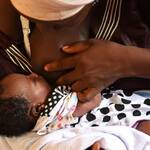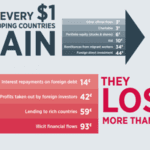An ePharmacy is a registered retail pharmacy that engages in the business of distribution or sale, stock, exhibit or offer for sale of drugs through an online portal or any other electronic mode.
This refers to a registered online, internet or mail-order pharmacy that operates over the internet and sends the orders to customers through the mail or courier/delivery companies.
It is very easy to order prescription drugs through E-Pharmacy.
Especially for people who live far away from a traditional pharmacy, the elderly, disabled people, and those who work very intensively, this system is both a very easy and a very fast method of obtaining medicine.
Additionally, the shipping cost is much cheaper than the travelling to a traditional pharmacy.
One of the most important advantages of the E-Pharmacy application is time saving. You can order your medication within minutes and get your prescription medicines very quickly.
All you have to do is to place an order by entering the prescription through the mobile application or website.
Buying drugs on the internet also saves money. Studies show that buying drugs online can save a third of money in total.
This system provides great convenience especially for those who are afraid of talking face to face with doctors and pharmacists.
E-Pharmacy, which offers a much wider range of options than a traditional pharmacy, provides a great advantage to patients.
It is not possible to find every drug in a physical pharmacy in a particular area, but there are many more drug options available in general drug stores.
The idea of having an integrated electronic pharmacy platform for the regulation and availability of medication online is a developing conversation in many countries.
Ghana’s first National Electronic Pharmacy Platform (NEPP) to facilitate cost-effective sale and secure access to medications and pharmaceutical services for consumers electronically, has been launched.
Ghana is the first country in Africa and one of only a few in the world to launch a national scale electronic pharmacy platform with all licensed pharmacies required to be a part of it and linked to the Food and Drugs Authority.
The e-pharmacy platform was developed by the Pharmacy Council of Ghana in collaboration with other health regulatory agencies.
It is designed to ensure subscribers have an unlimited access to online Pharmacies and Pharmacists for medicine purchase or enquiry, and a courier service to deliver medications within a limited time frame to individuals who make requests.
The backbone interconnectivity platform creates a web of relationships among several stakeholders including consumers, pharmacies, pharmacists, doctors and regulatory authorities.
The common electronic platform will ensure transparent medicine dispensing mechanisms and promote high accountability and responsibility.
All pharmaceutical services transacted on the platform shall be tracked, recorded and stored.
The platform will be integrated into other health ecosystem in the country to ensure safe, secure and transparent dispensing of medicines and pharmaceutical services.
The NEPP has also been linked to the FDA’s database to authenticate medicines requested by applicants to promote confidentiality and public safety.
The NEPP will help monitor the activities of unlicensed online pharmacies, improve the pharmacist-patient ratio and facilitate pharmaceutical service delivery.
It will among other things address four key concerns in the provision of pharmacy services; reduction in the sale of unlicensed medicines, ensuring confidentiality of health information, privacy of patients’ medical records, and minimizing counterfeit and sub-standard medication in the country.
Beyond the immediate need to improve patient access to pharmaceutical services and public safety, there is also an economic benefit that is yet to be tapped.
this platform not only important in linking patients to the approved licensed Pharmacies, registered pharmacists, and critical pharmaceutical services, but also a critical innovation in safeguarding the future of our youth, providing avenues for job creation, and digital startup business innovations and economic growth.
- 2023 Road crashes: 1,086 killed in first 6 months - 21 July 2023
- Compressed earth bricks manufacturers for Agenda 111 cry foul - 19 July 2023
- 17 defunct entities owned by government to be sold - 12 July 2023




